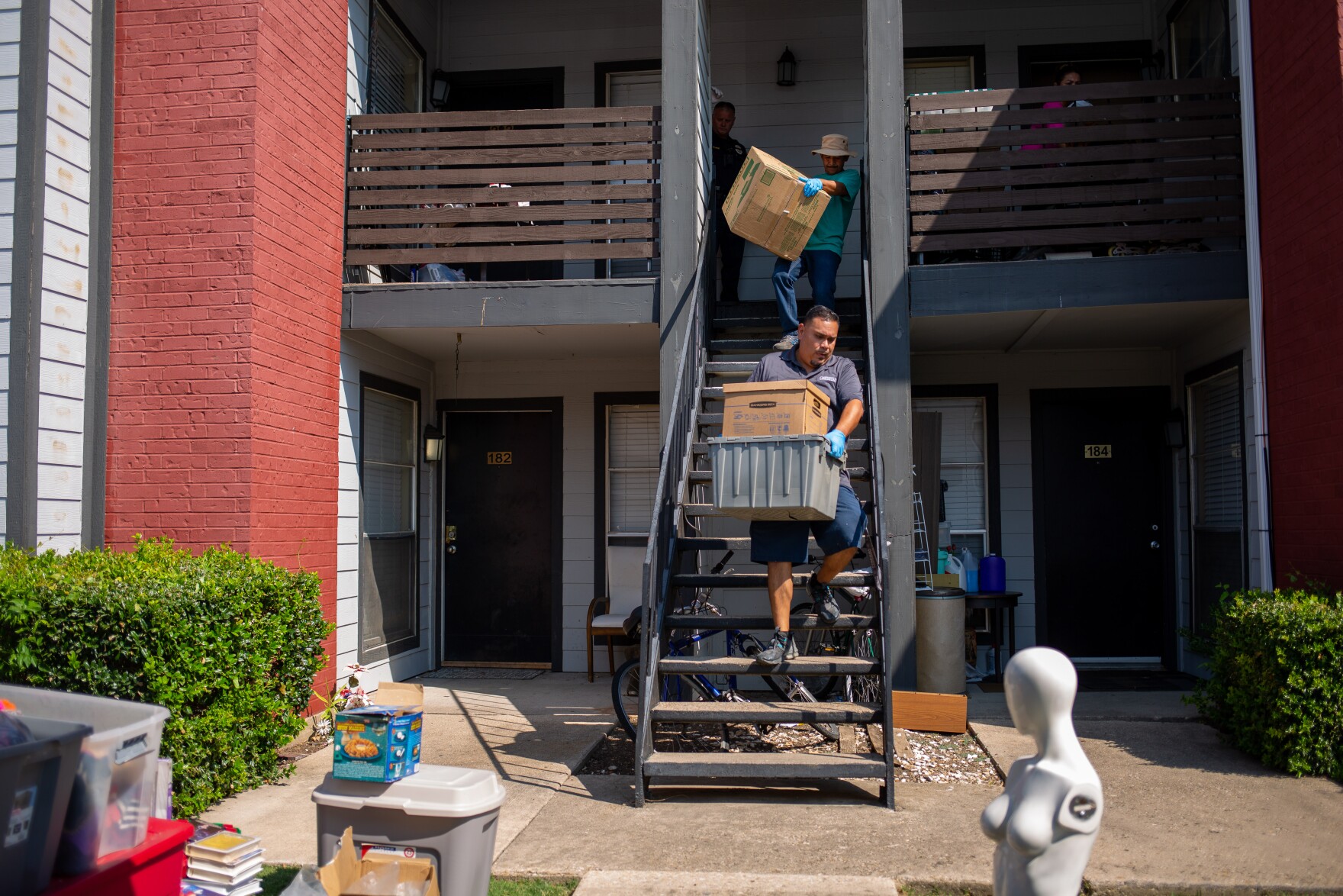The night before he was evicted, Jared Brown was frustrated, sad and anxious. That last one was a new feeling for him.
“Usually, I’m the one with the answers, with the plans. Well, I don’t have an answer. I don’t know. This whole situation is just really screwed up,” the 36-year-old Brown said.
He was scheduled to be evicted, even though the state had paid out almost $9,000 on his behalf to help his family keep their home. It felt “surreal,” he said.
What he didn’t know at the time was that the $1.9 billion Texas Rent Relief program had made an error, and his landlord was unaware he’d even applied for assistance.
So Brown was working at a furious pace, trying to sell some belongings online and pack up the rest of his stuff before the constables came in the morning to kick him out.
“It sucks, but there’s nothing I can do but pack it up and move along,” he said. “There’s nothing I can do, no amount of yelling or screaming or anything I can do to make it stop.”
Pandemic hardship
Brown lived in a one-bedroom apartment at the Aspire Independence apartments in Plano for five years with his wife and their dog. A few years ago, his uncle moved in with them, along with his dog. The 63-year-old has severe disabilities that have rendered him unable to work.

















